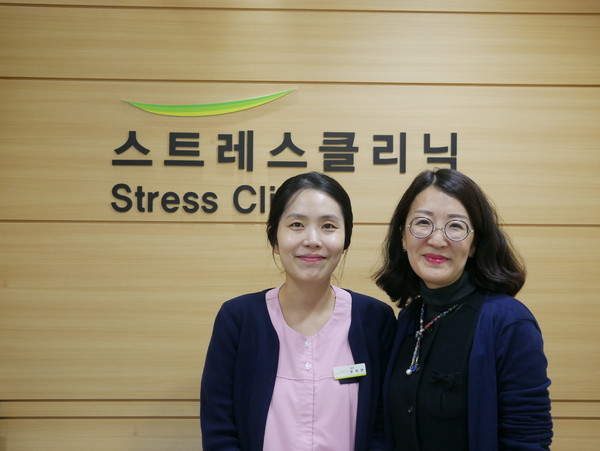Mental health issues are prevalent among young adults, with suicide being one of the leading causes of death among students. The conversation about mental health needs to be brought to the fore. Especially in KAIST, where students are under intense pressure, it is important to get rid of the negative stigma around getting help for mental health problems. The KAIST Herald talked to Dr. Alicia Kang, a clinical psychologist at the KAIST Stress Clinic, about mental health issues in general, and the mental health services available to the KAIST community.

How do we distinguish between normal sadness and mental health illness?
It is not that easy, and that is why we are here. It is for the professionals to distinguish, and we need to evaluate and plan out the treatments for each person. Generally speaking, normal sadness is a natural human emotion. When it gets too extreme, then you know that there is a problem. Normal sadness happens [when you] face unfortunate or distressing events, [for example] when your pet dies, or you break up with your partner, or when you get bad grades… It usually diminishes within a week or a few days. When it [becomes] more severe and calls for clinical attention, you cannot keep up your daily routines — you are unable to meet your deadlines, you skip classes too often, you withdraw from personal relationships and activities. Sometimes, you cannot get rid of bad thoughts and [constantly] worry about things that do not even seem to occur. The duration is longer, and the feeling [of being] depressed is [more frequent] than the times you feel okay or neutral. There are also some symptoms like sleep problems, drastic changes in appetite or weight, and repeated suicidal thoughts. [The latter] is the most severe. At that moment, you have to come to us, or call the campus police or 119.
What could people who are worried about their mental health do?
For light symptoms, it’s important for you to keep daily routines. Get nutritious food. Physical health is very important too: workout, [get enough] sunlight. Keep your social relationships and hobbies. It is very helpful to have a channel to relieve your stress. If you cannot help it, you need to see a professional. You can just ask, “I’m going through these kinds of things, am I okay?” There are no stupid questions.
What are some of the mental health services provided in KAIST?
We have the Student Counseling Center [in Taewoolgwan (N13)], and the Stress Clinic. For people who don’t want to be stigmatized because they come for mental health services, we have the Stop By and Chat program. Twice a week I go out to do this: [on Wednesdays] I go to Twosome Place [in N1], and [on Thursdays] I go to the KI Building. It is an anonymous and free program. Students come [because of] different kinds of things — when they break up with their girlfriend or boyfriend, when they’re having problems with roommates — from the [small] stuff to severe [problems]. I talk to them, and when they need a longer treatment, I see them [in the Stress Clinic]. Sometimes, after evaluation, when they need medication, we refer them to the psychiatrists [in the clinic]. For some of the problems, I send them to the Student Counseling Center. [If students] require some [legal support for] human rights, I send them to the Human Rights Center. I think this is a very good program for people who are hesitant to come for conventional mental health services, because we are having it in a regular, casual setting.
We also have walk-in sessions, [where students have an hour-long] regular consultation, and for emergencies, you don’t have to wait [for a schedule]: we have 30-minute consultations on Tuesdays and Thursdays on a first-come-first-serve basis.
What are some of the challenges you have faced as a psychologist in KAIST?
Probably the most challenging thing that we go through is when students and faculty members come too late. A lot of times they suppress [their emotions and problems] until the last point. It is very unfortunate, but we do our best, and we work with local university hospitals — if they need more severe treatments or need to be hospitalized. We hope that people come as early as possible, even for the little things; there are so many things that can be prevented [at the early stages], and only after a short period of time, they can return to their normal life.
Why are mental health services important in KAIST?
[Students in KAIST] are more into numbers and counting, and they need to see [proofs and evidence]. But here in the Stress Clinic, we are talking about the mind, relationships, thoughts, and being. I ask a lot of students questions like “How do you want to live?”, and they say “I’ve never thought about those kinds of things in my life.” They always get asked “what” and for their achievements. [It’s important to remember that] you don’t have to be 100% perfect, but it is important to be good enough. We know how stressful it is to be at the top.
College, in the long run, is the very beginning of adulthood. You need to not only prepare yourself performance-wise and get high achievements, but we think that it’s an important phase as a human being. It’s a very good opportunity to prepare to become a wholesome person and to prepare to have resilience, because you will face a lot of stressful events in your life. Sometimes people go through a lot of hardships because they can only see right now or just with narrow perspective; we broaden it during our sessions and that helps. We want to help the students while they’re here so they can be prepared to live a happier life being themselves.
For more information about these mental health services, visit the KAIST clinic website or the Stop By and Chat website (blog.naver.com/stopchat).

